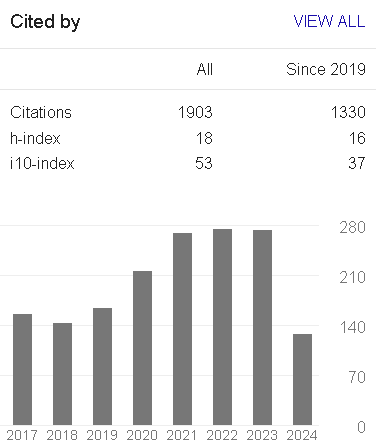Location Based Queries for Content Protecting In Privacy Preserving
Keywords:
Location server, overhead, private information retrieval, reputation technique, privacyAbstract
Mobile devices with global positioning capabilities allow users to retrieve points of interest in their proximity. To protect user privacy, it is important not to disclose exact user coordinates to un-trusted entities that provide location-based services. Currently, there are two main approaches to protect the location privacy of users: hiding locations inside cloaking regions and encrypting location data using private information retrieval protocols. Previous work focused on finding good trade-offs between privacy and performance of user protection techniques, but disregarded the important issue of protecting the POI dataset. It is very easy for a person to know his/her location with the help of devices having GPS facility. When user’s location is provided to LBS, it is possible to user to know all location dependent information like location of friends or Nearest Restaurant, whether or traffic conditions. The massive use of mobile devices pave the way for the creation of wireless networks that can be used to exchange information based on locations. When the exchange of location information is done amongst entrusted parties, the privacy of the user could be in harmful. Existing protocol doesn’t work on many different mobile devices and another issue is that, Location Server (LS) should provide misleading data to user. Privacy preserving reputation techniques provides a suitable approach to address such problem. They can be easily integrated into our methods.
References
C. Aguilar-Melchor and P. Gaborit. A lattice-based computationally-efficient private information retrieval protocol. Cryptology ePrint Archive, Report 2007/446, 2007.
H. S.-M. Ali Khoshgozaran and C. Shahabi. SPIRAL, a scalable private information retrieval approach to location privacy. In Proceedings of the 2nd International Workshop on Privacy-Aware Location based Mobile Services (PALMS), 2008.
. B. Bamba, L. Liu, P. Pesti, and T. Wang. Supporting anonymous location queries in mobile environments with privacy grid. In Proceeding of the 17th international conference on World Wide Web, pages 237–246, New York, NY, USA, 2008.
. A. Beimel and Y. Stahl. Robust information-theoretic private information retrieval. J. Cryptol., 20(3):295–321, 2007.
Downloads
Published
How to Cite
Issue
Section
License
Copyright (c) 2015 COMPUSOFT: An International Journal of Advanced Computer Technology

This work is licensed under a Creative Commons Attribution 4.0 International License.
©2023. COMPUSOFT: AN INTERNATIONAL OF ADVANCED COMPUTER TECHNOLOGY by COMPUSOFT PUBLICATION is licensed under a Creative Commons Attribution 4.0 International License. Based on a work at COMPUSOFT: AN INTERNATIONAL OF ADVANCED COMPUTER TECHNOLOGY. Permissions beyond the scope of this license may be available at Creative Commons Attribution 4.0 International Public License.


